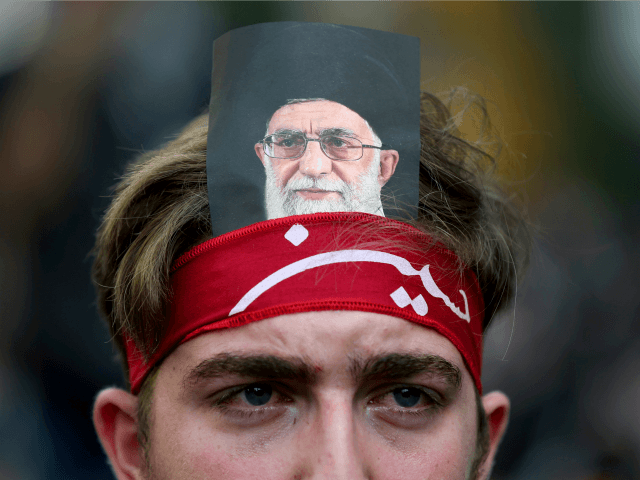Iran’s narco-terrorist proxy Hezbollah, backed by dictator Bashar al-Assad’s Russian-allied army, has captured most of an Islamic State (ISIS/ISIL)-controlled region on Syria’s side of its border with Lebanon, according to the Shiite group’s leader.
Although Hezbollah chief Sayyed Hassan Nasrallah expects a “very big victory” against ISIS, he revealed that negotiations for a ceasefire have begun, reports Reuters.
“So far, more than [about 104 square miles] have been fully captured on Syrian land” by Shiite Hezbollah and the Syrian army, revealed Nasrallah, adding, “Around [15 square miles] remain under Daesh [ISIS] control.”
Nasrallah told Reuters that ISIS leaders in Syria’s western Qalamoun region, where the recent clashes took place, had expressed a desire to negotiate a truce.
At the end of July, Shiite Hezbollah and a Sunni jihadist organization linked to al-Qaeda reached a truce after clashes on the Lebanese side of the Syrian border left more than 150 people dead.
Hezbollah, primarily based in Lebanon, joined forces loyal to Russian-backed Assad at the request of Iran soon after the Syrian civil war began in 2011, deploying thousands of Shiite troops to help the dictator fight off opposition forces and Sunni jihadist groups like ISIS and al-Qaeda.
The Shiite group generates millions of dollars for its terrorist operations in Syria from various illicit activities in the Western Hemisphere, including “smuggling contraband goods, passport falsification, trafficking in narcotics, money laundering, and credit card, immigration, and bank fraud,” according to the U.S. State Department.
Since last week, Russian and Hezbollah-backed Syrian troops have been fighting recently to remove ISIS from Syria’s western Qalamoun region.
The recent Hezbollah-backed Syrian offensive has coincided with an anti-ISIS operation carried out by the Lebanese army on its side of the border.
Reuters reports:
The zone straddling the border is the last part of the Lebanese-Syrian frontier under militant control.
Both offensives have advanced toward the border from opposite sides. The Lebanese army says it is not coordinating the assault with the Syrian army or Shi’ite Hezbollah, which Washington classifies as a terrorist group.
Various analysts, including Tony Badran of the Foundation for Defense of Democracies, believe Hezbollah largely controls the Lebanese government and army.
“Any joint operation between the Lebanese army on one hand and Hezbollah with the Syrian army on the other would be politically sensitive in Lebanon and could jeopardize the sizable U.S. military aid the country receives,” points out Reuters.
ISIS has suffered significant losses in its shrinking caliphate in Iraq and Syria where the jihadist group reportedly holds about 20 percent of the 35,000 square miles it controlled at its peak in early 2015.
Besides Hezbollah, Iran has also recruited Shiite fighters from neighboring Afghanistan and Pakistan to use as “cannon fodder” in defense of Assad.
According to Iranian state-controlled news agencies, the number of Iranian-recruited Shiites killed in Syria has surpassed 1,000, many of them Afghans.
As of November 2016, Iran commanded 25,000 troops in Syria, most of them Shiites from Afghanistan and Pakistan, revealed Avi Dichter, the former head of Israel’s domestic intelligence agency who currently chairs the country’s foreign affairs and defense committee.
A “disproportionally high” number (about 656) of Shiites from Afghanistan have been killed while fighting on behalf of Iran in Syria, according to Radio Free Europe/Radio Liberty (RFE/RL).
There are also between 100,000 and 120,000 Iran-allied Shiite fighters fighting against ISIS in Iraq.
Some analysts have raised concerns that the Shiite troops are seeking to open an overland supply route between Iraq and Syria as part of the Islamic Republic’s goal securing its influence from Tehran to Beirut in a “Shiite crescent” of Iranian influence through neighboring Iraq, Syria, and Lebanon.

COMMENTS
Please let us know if you're having issues with commenting.